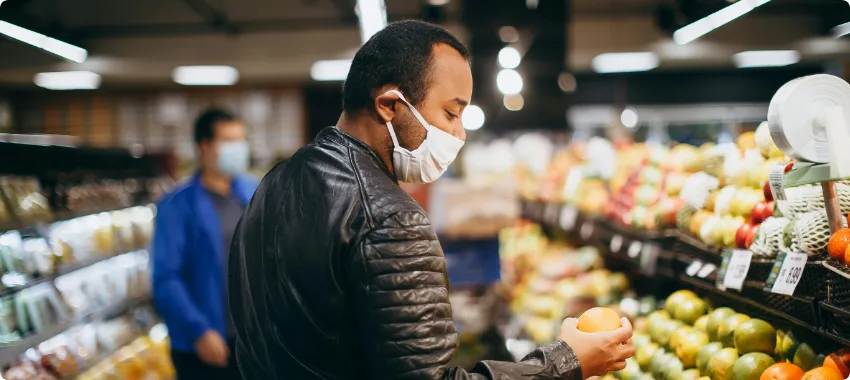Food Safety Tips for Everyone From Shopping to Dining
When we consume food, it is extremely important that the respective consumable item is safe as ultimately this safeguards ourselves along with our dear ones from all those prevailing problems of diseases. Good food safety habits are not just for the professional in a commercial kitchen, but even at home when dining out or shopping for groceries. In the meantime, this article aims to emphasis food safety and provides tips on how you can ensure what you eat is safe for your health.
Why Food Safety Is Important?
Food safety is important because it affects our health, and eating contaminated food caused by harmful bacteria, viruses parasites or chemical substance can lead to long term consequences. These illnesses can range from minor gastrointestinal discomfort to very serious and potentially fatal diseases. Particularly for specific populations like young children, elderly people individuals those who are aged women that is pregnant.
Practices related to food handling, processing and storage ensure that contamination risks are reduced thereby keeping the product safe for consumption. Moreover, food safety practices safeguard human health and prevent epidemics in any case of food production no matter they are domestic or export-oriented. Proper food safety practices are critical for everyone, as they not only protect individual health but also contribute to a healthy community by reducing the spread of preventable illnesses.

Food safety precautions while shopping
Place more emphasis on food safety when you shop, with priority given to last-minute perishables where direct-to-consumer time is at room temperature. Be sure to check product is ISO Certified, expiration dates, verify freshness and also avoid buying any damaged cans or packages bulging or foods with broken seals. Plastic bags can also be used, in case of leaks when meat and poultry should always be wrapped inside clean plastic bags to avoid cross-contamination with ready-to-eat foods.
Check the temp of products u buy, keep refrigerated stuff cold and if you get frozen — make sure it’s covered in ice or is a solid block (rather than slush) You should buy, take it home quickly and preserve the product in cold to make sure that their quality is preserved — otherwise you will have problems with bacterial multiplication.
Ensuring Food Safety with ISO Standards
To safeguard the consumers as well as the businesses, the Abu Dhabi Agriculture and Food Safety Authority has highlighted the value of food safety training and international standards. The knowledge of food safety becomes essential in the maintenance of hygiene, quality, and compliance in the entire food supply chain. Companies can reinforce their activities on the basis of HACCP food safety principles and a robust Food Safety Management System (FSMS) in accordance with ISO recommendations.
An ISO 22000 certification shows that a company cares about safe operations, whereas a food and safety certificate helps to gain more credibility and customer confidence. When FSM and FSS are properly implemented, the businesses can be aligned with the global best practices, risks are minimized, and safe food delivered at the farm to the fork.
Benefits of food safety management System
Food safety management develop a solid safety management system in food production. All of them help to have an integrated view on how to control food hazards, including the cleanliness of facilities up to the control of processes and risks management. These standards promote compliance with the regulations, mitigate the chances of contamination, and avoid foodborne diseases, which enable companies to comply with both national and international standards. Additionally, the implementation of these standards creates consumer confidence, enhances the performance of operations, as well as, enhances the brand image through the delivery of high Quality products that maintain high safety levels at all times.
Frequently asked questions
What is the importance of food safety?
Food safety is important because it affects our health, and eating contaminated food caused by harmful bacteria, viruses, parasites, or chemical substances that can lead to long term consequences.
Who needs to implement HACCP certification?
In the food industry, including meat, poultry, and seafood processors, and is often required for businesses in food production, processing, packaging, and distribution.
How does HACCP affect product quality?
HACCP helps prevent contamination, spoilage, and other issues that may enhance product quality.
How can Food Safety Management impact a business's reputation?
A strong FSMS shows that a business prioritizes food safety, which builds consumer trust.
What is the difference between HACCP and food safety management system?
HACCP is a key component often included within an FSMS, while FSMS is a complete system for managing food safety, addressing all aspects from production to consumer delivery.
- Food Safety with ISO standards
- How ISO Certifications Help in UAE vision 2030
- Role of ISO Consultants and Certification Bodies
- Who Accredits Certification Bodies?
- Standards of Halal certification
- Why ISO 45001 Replaces ISO 18001?
- ISO Trainings and their Benefits
- Which Sectors implement ISO 9001
- Industrial City of Abu Dhabi Free Zone
